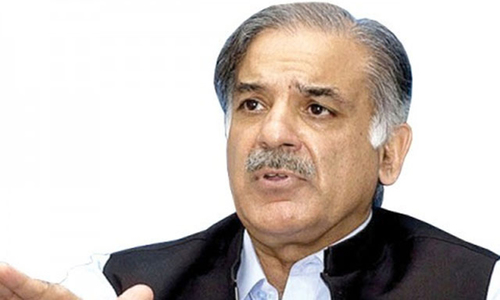ISLAMABAD: The opposition has taken the unanimous stance that Prime Minister Imran Khan will have to talk directly to the leadership of the two main opposition parties — the PML-N and the PPP — for extending the tenure of military courts in the country.
However, the government’s spokesperson, Information Minister Fawad Chaudhry, rejected the demand and said that the prime minister would never engage in dialogue with the leadership of these two parties.
The PPP, which had initially decided in its recently held central executive committee meeting that it would not support the extension of the tenure of military courts, changed its decision and agreed to hold talks with the government on the issue.
Senior party leader Syed Khursheed Shah demanded on Wednesday that Prime Minister Khan should directly hold talks with the PPP leadership, otherwise it would be difficult for the government to have passed any Constitutional amendment in parliament in this regard.
Talking to reporters at Parliament House, Mr Shah said that the issue of military courts was quite important and sensitive, and therefore it could not be resolved at the level of a committee.
“The issue of the extension of [the tenure of] military courts cannot be resolved at the level of a committee, but at the level of the top leadership of the opposition and ruling parties,” he said. “The prime minister should hold leadership to leadership talks on the matter.” This, he pointed out, would be no new phenomenon.
Meanwhile, PML-N president and leader of the opposition in the National Assembly, Shahbaz Sharif, and PPP leaders Khursheed Shah and Naveed Qamar, also met on Tuesday to discuss the issue, deciding that the opposition will come up with a unanimous stance on all matters.
Mr Qamar told Dawn that his party must work with the PML-N on the issue of military courts and will review its earlier decision to oppose such tribunals.
“If the PPP remains stuck to its stance, it will weaken the opposition,” he commented, endorsing the opposition’s demand that Prime Minister Khan should himself hold talks with the opposition parties’ leaderships “But now Imran Khan seems to be quite rigid on the issue,” he added.
PML-N spokesperson and former information minister Marriyum Aurangzeb also demanded that the prime minister hold talks with the opposition on military courts.
“I am quite astonished at why Imran Khan is silent on such an important issue,” she said.
On the other hand, the PTI government’s spokesperson, Mr Chaudhry, said that the prime minister had no need to talk directly with the leaderships of the parties in opposition. He explained that there was laid-down procedure in the Constitution to resolve such sensitive matters, and that was why a parliamentary committee headed by Defence Minister Pervez Khattak had been formed.
“In the presence of the parliamentary body, there is no need for Imran Khan to talk to opposition leaders,” he added.
The minister criticised the opposition for creating pandemonium in the National Assembly during Finance Minister Asad Umar’s mini-budget speech, and said: “The opposition always goes against what it commits to and therefore the prime minister will never sit with their leaders on the issue of military courts.”
The two-year term of military courts will end on March 23, but the government wants their tenure extended further in order to try hardened terrorists at these fora. Military courts were allowed to try civilians accused of terrorism in January 2015, soon after the Peshawar Army Public School attack in December 2014, in which 144 people, mostly children, were killed by militants of the banned Tehreek-i-Taliban Pakistan. Both houses of parliament passed the 21st Constitutional amendment regarding military courts, with the inclusion of a sunset clause, despite fears amongst lawmakers that the tribunals would not be able to ensure due process, and might undermine democracy.
The courts became dysfunctional on Jan 7, 2017, after the expiry of the two-year Constitutional cover, until March of that year when their term was extended for another two years by parliament.
Published in Dawn, January 24th, 2019















































